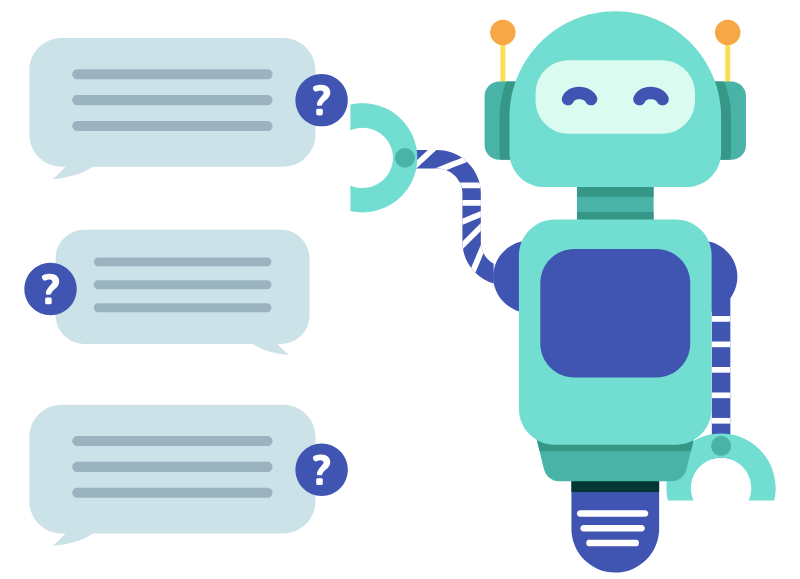Enhance Website Visibility
Unblocking URLs Blocked By Robots.txt
We will generate a robots.txt file for your website to allow you to regulate how search engines scan and index it. Our robots.txt file will be safe and ethical, with no damaging, insensitive, or contentious material. In addition, we will ensure that our robots.txt file does not advocate violence, bigotry, or prejudice. We only gather the information required to develop a secure and functional robots.txt file for your website.

What is URL Blocked by robots.txt?
Robots.txt can block a URL when a website prohibits search engines from crawling it.
This can happen for a few reasons, such as if the page is under construction or if it contains sensitive information.
If you get the error message “URL blocked by robots.txt,” it means the website owner has blocked access to the page. This message appears when robot.txt has blocked the URL.
User-agent: * Disallow: /secret-page.html
Why this Error Occurs?
There are a few reasons why robots.txt might ban a URL:
- The page is under construction and not ready for public viewing.
- The page contains sensitive or confidential information.
- The page is not important for search engine indexing.
- The website owner has chosen to block the page for other reasons.
- The robots.txt file for the website has blocked the page if you encounter the error message “URL blocked by robots.txt” when attempting to access it. You can contact the website’s webmaster to request that they unblock the page.

How do I fix it?
Several methods exist to unblock a URL that robots.txt has blocked:
- Check the robots.txt file.
- Make sure the robots.txt file is formatted correctly.
- Contact the website owner.
The robots.txt file is usually located at the root of the website, which is the top-level directory of the website. You can access it by typing the following URL into your web browser:
Replace www.example.com with the domain name of the website that you are trying to access.
Once you have opened the robots.txt file, look for the Disallow: directive. This directive tells web crawlers which pages on the website they are not allowed to crawl.
To unblock a URL, remove it from the Disallow: directive in the robots.txt file.
The Disallow: directive tells web crawlers which pages they are not allowed to crawl.
For web crawlers to read the robots.txt file, it needs to be properly formatted:
- The file must be in plain text.
- It must be located in the root directory of your website.
- It must only contain two directives: Disallow: and User-Agent:
- The Disallow: directive specifies the URL or directory that the web crawler is not allowed to crawl.
- The User-Agent: directive specifies the name of the web crawler to which the directive applies.
- The web crawler to which the User-Seller: directive should be applied is named in the directive.
For example, if you want to block Googlebot from crawling your website, you would add the following line to your robots.txt file:
User-agent: Googlebot
Disallow: /
The web crawler to which the User-agent: directive should be applied is named in the directive. The Disallow: directive specifies the URL or directory that the web crawler is not allowed to crawl.
You can use the robots.txt tester tool from Google to check your robots.txt file for errors. The tool will tell you if the file is formatted correctly and if it contains any errors.
If the URL is not listed in the disallow directive and the robots.txt file is formatted correctly, you can contact the website owner to request that the URL be unblocked. You can usually find the contact information for the website owner on the website's contact page.
When you contact the website owner, explain why you need the URL to be unblocked. Unblock a URL by removing it from the Disallow: directive in robots.txt.
This can be done to access a page under construction or to index it for search engines.
The website owner may or may not unblock the URL.
If they do, they need to update the robots.txt file.
Wait for web crawlers to recrawl and index the page.
Why is it necessary to resolve the issue?
This problem be fixed because robots.txt can stop a page from being crawled and indexed by search engines. This can cause harm to the website’s SEO, as it will be less likely to appear in search results. You should get in touch with the owner of the website and request that they unblock a URL that robots.txt has blocked.
You can also try to fix the issue yourself by checking the robots.txt file to make sure that the page is not listed in the disallow directive. If a page is not in the robots.txt file, contact the owner to add it. Find contact info on the website or contact page. Be patient and polite. Once the issue has been resolved, search engines ought to be able to crawl and index the page. The user experience and SEO of the website will both benefit from this.
Ranking on search engines
To determine which pages on a website are crucial, search engines consult the information in the robots.txt file. Robots.txt prevents search engines from indexing a page, which decreases the likelihood that it will appear in search results. The website's SEO may suffer as a result of this.
User experience
A user will see an error message if they attempt to access a page that robots.txt has blocked. This can be frustrating for users and damage the website's reputation.
Security
If a page contains sensitive information, it is essential to prevent web crawlers from accessing it. By blocking the page with robots.txt, you can help protect sensitive information from unauthorized access.
Here are Some More Considerations for Robots.txt
- Robots.txt is not a foolproof way to protect your website. There may be other ways for a web crawler to access a website that has been blocked by robots.txt.
- Robots.txt is not a replacement for sound security practices. If you have important information on your website, you should use encryption and strong passwords to secure it.
- Robots.txt is not a panacea for SEO. If you want to increase the SEO of your website, you should concentrate on providing high-quality content and developing backlinks.

Frequently Asked Questions
To unblock robots.txt in WordPress, take these steps:
- Navigate to your WordPress dashboard.
- Choose "Settings."
- Choose "Robots."
- Uncheck the box next to "Block all bots" in the "Robots.txt" section.
- Click "Save Changes."
Robots.txt may have an impact on SEO in several ways. It can help starters to protect their website from spam, by stopping web spiders.
Robots.txt can help improve your website's speed by preventing search engines from crawling pages that are not important to search results. This can reduce the load on your website's servers and make it faster for users to load the pages that are indexed.
Third, it can improve your website's ranking in search engines by blocking web crawlers from accessing it.
Robots.txt may be a security risk if not properly set. For example, if you ban all bots from crawling your website, security experts might be unable to scan it for openness. Furthermore, allowing bots to explore sensitive sites, such as your login page, exposes your website to assault.
Google restricts the size of robots.txt to 512 kilobytes. This implies that your robots.txt file cannot be greater than 512 kilobytes.
If your robots.txt file is greater than 512 kilobytes, Google will ignore it.
Web spiders will crawl all your website's pages if there is no robots.txt file. This can result in a variety of issues, including:
Slow website performance: Web crawlers can consume many resources, which might cause your website to slow down.
Security risks: By scanning sensitive sites, web crawlers might expose your website to attack.
SEO issues: Web crawlers may be unable to properly index your website, which might harm your SEO.
Web spiders will crawl all your website's pages if there is no robots.txt file. This can result in a variety of issues, including:
Slow website performance: Web crawlers can consume many resources, which might cause your website to slow down.
Security risks: By scanning sensitive sites, web crawlers might expose your website to attack.
SEO issues: Web crawlers may be unable to properly index your website, which might harm your SEO.
